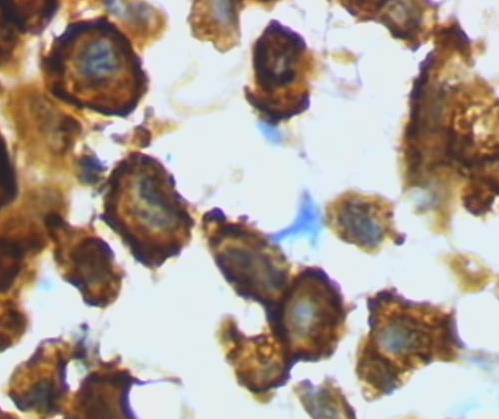
Microglia inhibitor stops neuronal cell death after TBI
Targeting overactive immune cells in the brain and dampening their chronic neurotoxic effects may offer a new therapeutic strategies for traumatic brain injury (TBI), according to preclinical data published in the Journal of Neuroscience. The research results presented by a team from Trinity College Dublin and the University of Maryland School of Medicine, (Baltimore, USA) suggest that the impact of TBI on brain degeneration may be modifiable up to three months after the injury was sustained – something at odds with current thinking.
Triggered by trauma, microglia – the brain’s innate immune cells – are activated and morph into an inflammatory state, which helps to protect the brain. However, chronic inflammation after TBI may contribute to degeneration of neurons and cognitive declines similar to those observed in TBI-associated neurodegenerative diseases, such as chronic traumatic encephalopathy and Alzheimer’s disease as demonstrated previously by a Californian research team and Plexxikon Inc.
One month after a TBI, the researchers blocked colony stimulating factor 1 receptor (CSF1R) signaling with PLX5622, a preclinical orally bioavailable, brain-penetrant synthetic compound developed by Plexxikon Inc, which microglia cells need for their survival. CSF1R inhibition killed 95% of the mice microglia cells. However, the cells bounced back to normal levels once the inhibition ends.
The researchers found that the inhibition essentially "reset" the mice’s microglia: the new cells were in a more normal, less inflammatory state. The mice recovered better than the mice that didn’t receive treatment, showing less brain damage, fewer neuron deaths, and better motor and cognitive performance.
"These preclinical studies suggest that the consequences of TBI on brain degeneration and related neurological impairment may be modifiable quite a long time after injury by targeting inflammation pathways, said David Loane, Research assistant professor in Trinity’s School of Biochemistry and Immunology. "The exciting thing is the possibility that we may one day be able to minimise brain degeneration and neurological impairment in people who have suffered a TBI," he added. "Our findings suggest targeting inflammation pathways further down the treatment line may make a major difference to long-term brain health and recovery."
Although the compound has been demonstrated to have an advantagous pharmacokinetic profile in several animal models, adverse effects have to be monitored thoroughly as in mice PLX5622 had adverse sex-specific effects, including accelerated weight gain, hyperactivity and anxiolytic-like behaviour.



 adobe.stock.com - ipopba
adobe.stock.com - ipopba BioDlink
BioDlink